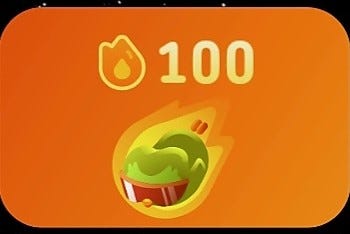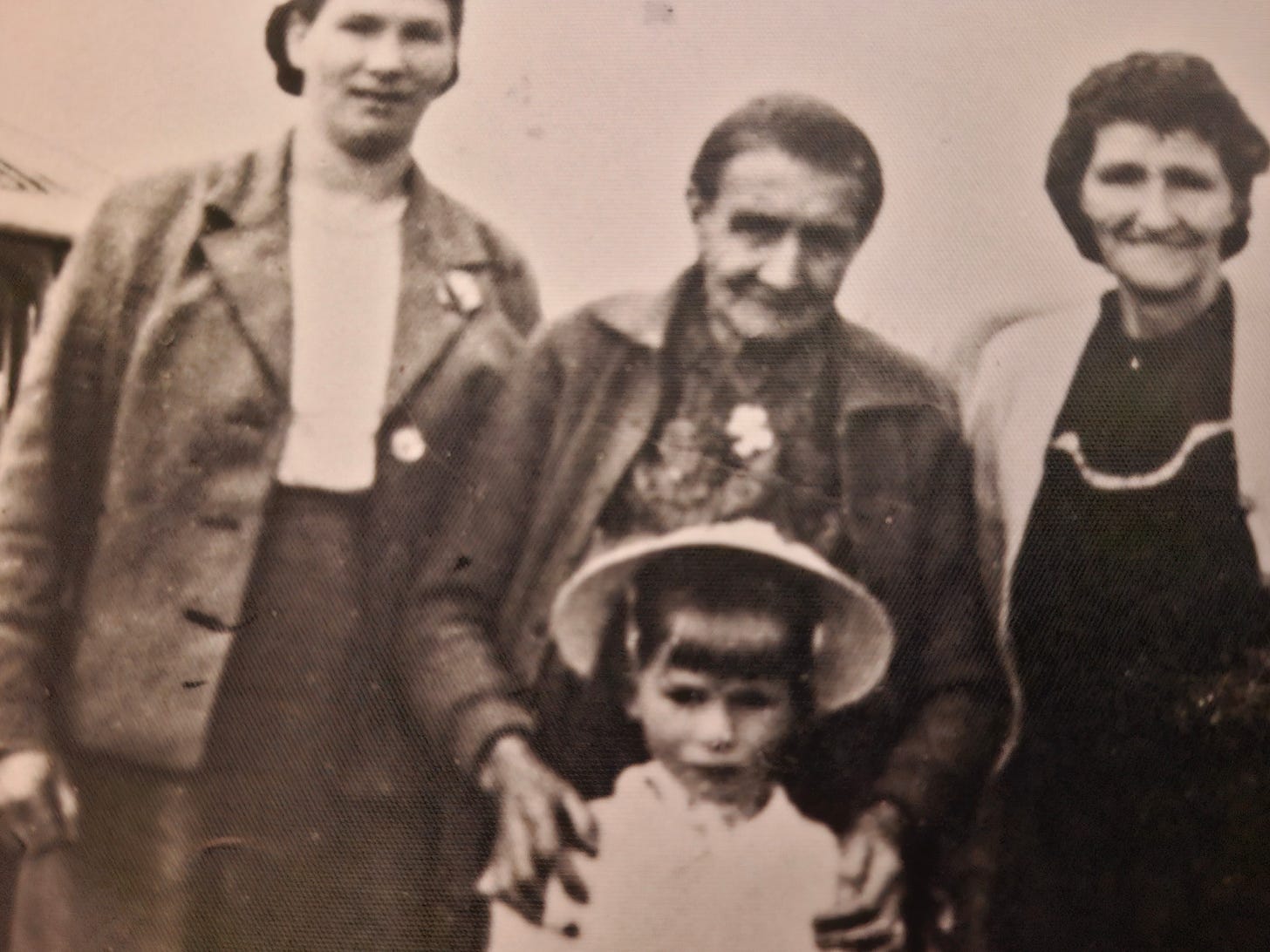One Hundred Days of Gaelic
One hundred days ago, I began learning Scots Gaelic on Duolingo. I also have another Gaelic course hosted by the BBC that I plan to start soon, but Duolingo was the easiest way to begin quickly and fit this new learning around all the other studying I have been doing.
Why Gaelic?
Why choose an ancient language? The truth is, I have wanted to learn Gaelic for many years. As a teenager, I remember hearing a piece of Gaelic music that sank deep into my soul. My dad told me then that my great-granny was a Gael, and apparently, she was exceptionally fluent with Gaelic swear words.
Learning it now, I have been surprised at how approachable it feels. Once I remember that sentences begin with verbs, it is not so daunting. Over the years, I have absorbed little fragments of the language from music and from place names woven into the Scottish landscape. It really is beautiful. Take one simple example: to say "I love you", you say Tha gaol agam ort, which literally means "My love is on you".
Part of my motivation is also creative. In the debut novel I am currently writing, I have created a character who is a Dal Riatan Scot living in Pictland. He will be bilingual, speaking both Gaelic and Pictish, and I want his voice to feel alive, not just imagined.
Not Just Gaelic
After a few weeks of Gaelic, I decided to brush up on my French, and also add Italian, since my husband’s family traces back there. Italian feels familiar almost immediately. Words like piazza and pizzeria are everywhere. French helps too, since both languages share the same grammar pattern.
Then, perhaps recklessly, I added Welsh.
Welsh is a Challenge
Welsh probably seems like an odd addition, since I have no personal ties to Wales and have never visited. But as someone fascinated by Pictland, what would later become the north of Scotland, Welsh gave me a way to glimpse into the past. Brythonic, the language Pictish is thought to have resembled, survives most clearly today in Welsh. At one time, Brythonic would have been spoken across much of Britain.
That said, Welsh is the hardest for me. I suspect it is because I have had almost no exposure to it before now, unlike French, Italian, or even Gaelic.
Suppressed Languages
Languages do not vanish by accident. Throughout the history of the British Empire, the establishment deliberately suppressed the languages and cultures it deemed "lesser". That did not only happen in Africa, the Americas or India. It happened here, across the British Isles.
Gaelic, Irish, Welsh, Manx, Cornish and Scots were all pushed aside. Schools enforced standard English and punished children who spoke their native tongue. In Scotland, around a quarter of the population once spoke Gaelic. By the mid-20th century, that number had fallen below 3%. The Education (Scotland) Act of 1872, which made no provision for Gaelic, was a decisive blow.
And it was not only Gaelic. Scots, the everyday tongue of much of Scotland for centuries, was gradually rebranded as "bad English". By the 18th century, institutions favoured "proper" English for law, administration and education. Scots poetry and song endured, but ordinary Scots speech was marginalised.
The consequences were deeply personal. Generations of children were made to feel ashamed for speaking the way their families did at home. Many grew up believing their words were worth less than English ones. That shame, that wound to confidence and self-respect, was passed down.
Even today, many Scots speakers juggle pride with embarrassment, fluency with self-consciousness. And yet, the language endures. Despite centuries of suppression, Scots lives on in Doric, Lallans, Border speech, songs, humour and poetry.
I Speak Doric Scots
I grew up speaking Doric, the dialect of Scots in the North East. Doric is wonderfully expressive, with words that have no neat English equivalent. Sometimes you need several English words to capture the same meaning.
My mum used to write Doric poems, full of humour and turn of phrase. The first school prize I ever won was the Burns Federation Prize, for reciting the Scots poem The Bus Conductress. Today, as a teacher, I notice something special when I bring Scots into the classroom. Children who sometimes struggle to express themselves in English suddenly find their voice. It is like unlocking a door.
Yet for far too long, Scots speakers have been told their language is inferior, that it is something to leave at home, something to be ashamed of.
Closing Thoughts
Maybe that is why I am learning Gaelic now, all these years later. These languages, Scots, Gaelic, Welsh, Cornish, Manx and Irish, were never "lesser". They were deliberately suppressed. They carry the stories, humour and worldview of generations.
For me, every new verb, every new phrase, feels like a small act of restoration. A reminder that our voices matter. A reminder that the words shamed out of our grandparents can still be spoken, still be sung, still be loved.
Languages do not truly die as long as someone keeps speaking them. And I, for one, am not done learning.
So here is my wish, for Gaelic, for Scots, for all the tongues that have carried us this far:
Lang may yer lum reek. (P.S. I am aware that languages don’t have chimneys!)



